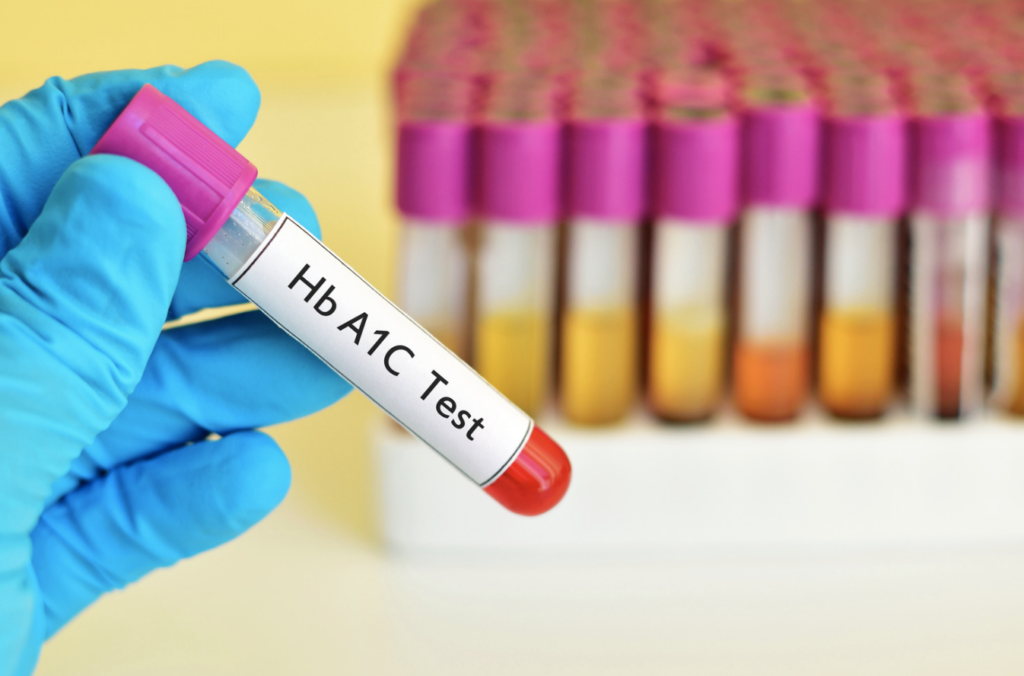
HbA1c (also known as A1c) stands for glycated hemoglobin. It is a blood test that measures the average blood sugar (glucose) levels over the past 2-3 months.
When glucose is in the blood, it binds to hemoglobin, which is the protein in red blood cells that carries oxygen. The amount of glucose that hemoglobin picks up depends on the amount of glucose in the blood at the time. Over time, as more glucose binds to hemoglobin, it forms glycated hemoglobin (HbA1c), which stays in the bloodstream for the lifespan of the red blood cell, which is about three months.
The HbA1c test is used to diagnose and monitor diabetes. The American Diabetes Association recommends that people with diabetes aim for an HbA1c level below 7%. The higher the HbA1c level, the greater the risk of developing diabetes-related complications, such as kidney disease, nerve damage, and eye problems. The HbA1c test is also used in people without diabetes to identify their risk of developing diabetes.
- A simple blood test can be done at any time of the day, regardless of when the last meal was eaten.
- Unlike a regular blood glucose test, which measures the amount of glucose in the blood at a specific moment in time, the HbA1c test provides a long-term picture of glucose control.
- HbA1c levels are expressed as a percentage of the total hemoglobin in the blood. For most people, a normal HbA1c level is between 4% and 5.6%.
- The HbA1c test is recommended for people with diabetes to monitor their blood sugar control over time. Depending on the results of the test, the treatment plan may be adjusted, including changes to medication, diet, and exercise.
- The HbA1c test is also used to diagnose diabetes. An HbA1c level of 6.5% or higher, when confirmed by a second test, indicates diabetes.
- It’s important to note that certain factors can affect the accuracy of the HbA1c test, such as certain medical conditions, medications, and blood disorders. Therefore, it is important to discuss the interpretation of your HbA1c test results with your healthcare provider.